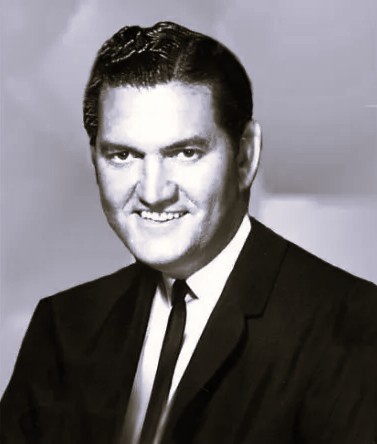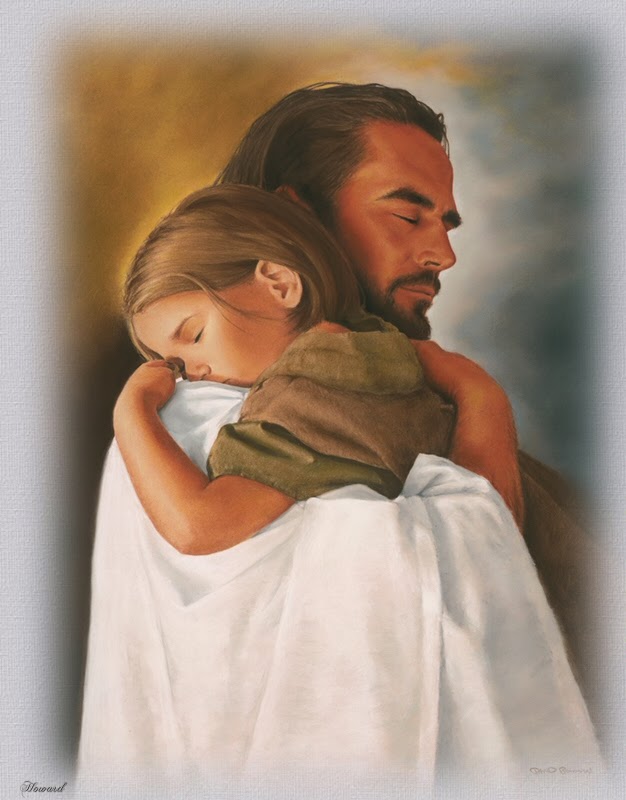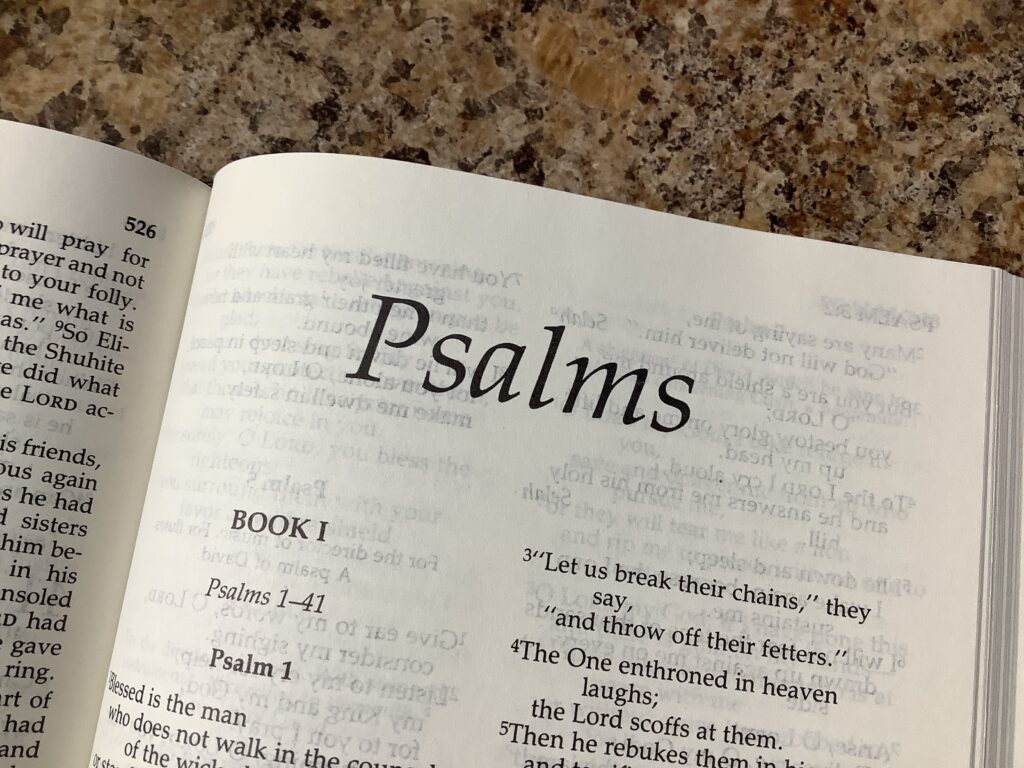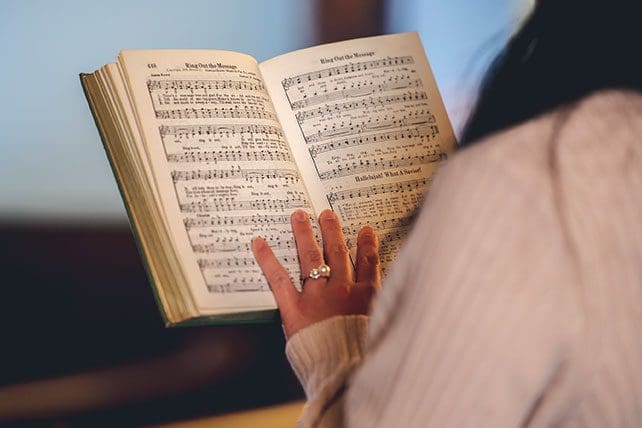O Come, All Ye Faithful
Lyrics
O come ye, O come ye to Bethlehem!
Come, and behold Him, born the King of angels!
O come, let us adore Him;
O come, let us adore Him;
O come, let us adore Him, Christ, the Lord!
lo, He abhors not the virgin's womb;
very God, begotten not created;
sing, all ye citizens of heav'n above!
Glory to God, all glory in the highest!
Jesus, to Thee be all glory giv'n!
Word of the Father, now in flesh appearing!
Bible Reference
Luke 2:15
About This Hymn
“O Come, All Ye Faithful” is one of the most cherished Christmas hymns in the Christian tradition. Originally written in Latin under the title Adeste Fideles, the hymn is generally attributed to John Francis Wade, an English Catholic layman who lived in exile in France during the 18th century. The Latin version likely dates to the 1740s. In 1841, Frederick Oakeley, an Anglican minister who later became a Roman Catholic priest, translated the hymn into English, giving the world the enduring version known today.
The hymn is a joyful invitation to the faithful to come and worship the newborn Christ in Bethlehem. With its call to “Come, let us adore Him, Christ the Lord,” the song echoes the shepherds’ response in Luke 2:15, as well as the heavenly host’s proclamation of Christ’s birth. Each stanza builds on this theme of adoration, focusing on the majesty, divinity, and mystery of Jesus Christ, who is both God and man. The text captures the wonder of the incarnation, declaring Christ as “very God, begotten, not created,” a clear affirmation of traditional Christian doctrine.
The tone of the hymn is both reverent and exuberant. The faithful are invited not just to acknowledge Christ’s birth, but to respond in worship and praise. The lyrics move through a progression of themes: calling the faithful to Bethlehem, describing the angelic hosts, and exalting the eternal nature of Christ. By the final verses, the worshiper is led to join the angels in singing “Glory to God in the highest,” aligning human voices with the divine chorus.
Musically, the hymn is powerful and majestic. The tune, also attributed to Wade, features a bold and singable melody that lends itself well to congregational singing and festive choral arrangements. Its strong structure and solemn tone have made it a staple in Christmas Eve services, carol concerts, and holiday worship across the world. Whether sung by a choir, a congregation, or simply around a piano at home, it carries a sense of awe and celebration.
“O Come, All Ye Faithful” remains one of the clearest and most joyful proclamations of the meaning of Christmas. It unites theology with worship, tradition with song, and invites everyone faithful and seeking alike to behold and adore the Savior. Its enduring message continues to inspire worshipers to respond to the miracle of Christ’s birth with heartfelt reverence and joyful praise.
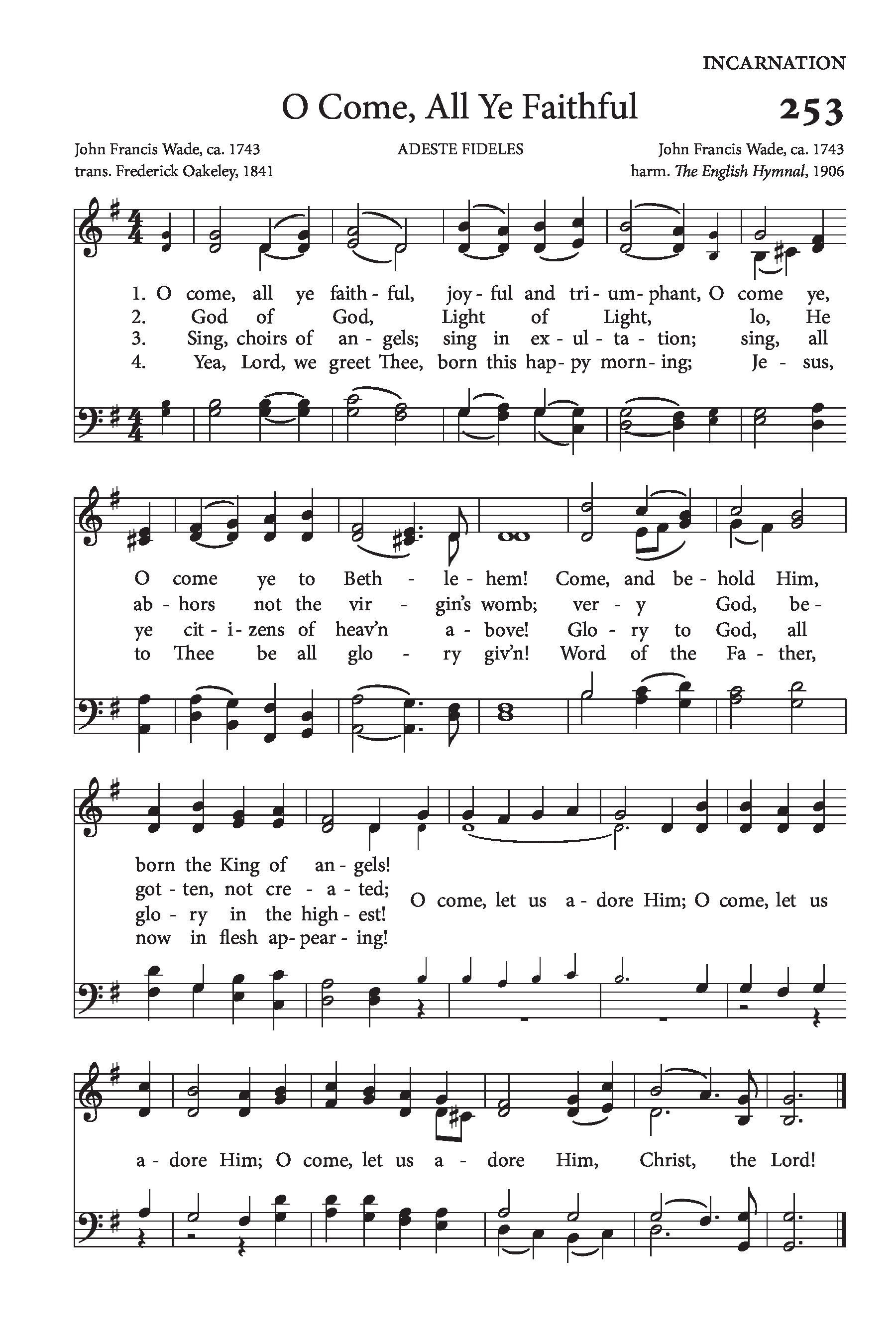

📬 Subscribe to Our Devotional Updates
Receive weekly hymns, devotionals, and website features directly in your inbox.
⭐ Recommend This Hymn
Share this beautiful hymn with others
This hymn is found in these hymnals
Open the hymnal that contains this hymn:
Latest Updated Hymnals
-
Open
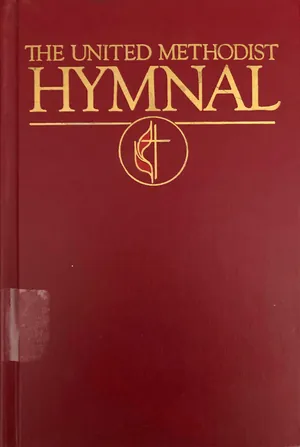 The United Methodist Hymnal (UMH)Updated Mar 02, 2026 · 1989
The United Methodist Hymnal (UMH)Updated Mar 02, 2026 · 1989 -
Open
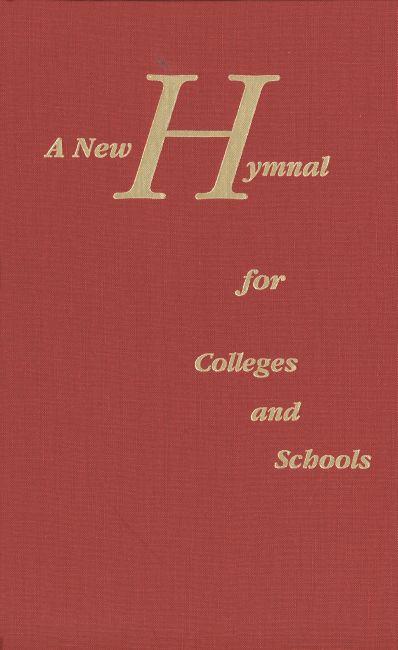 A New Hymnal for Colleges and SchoolsUpdated Mar 02, 2026 · 1992
A New Hymnal for Colleges and SchoolsUpdated Mar 02, 2026 · 1992 -
Open
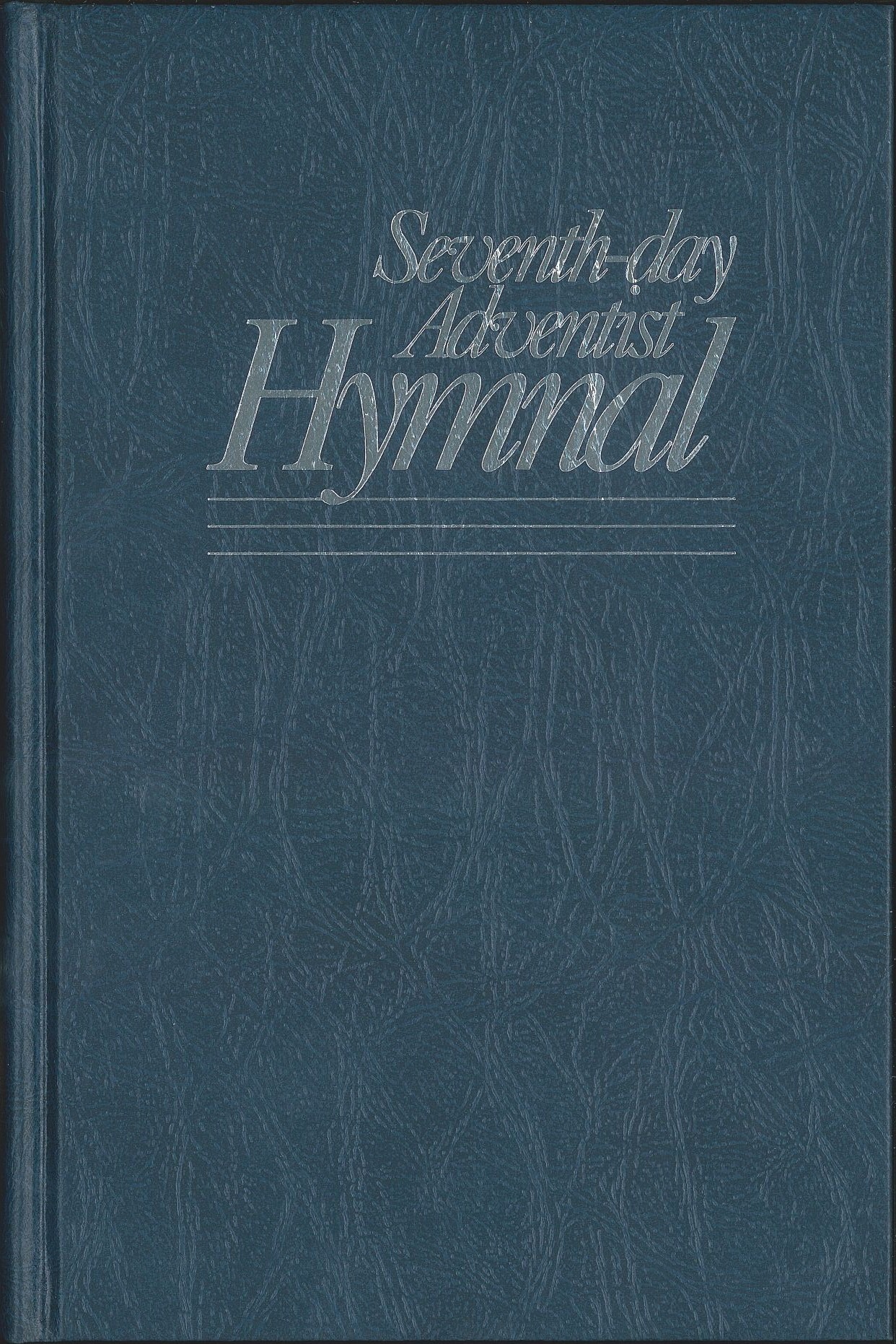 The Seventh-day Adventist HymnalUpdated Mar 02, 2026 · 1985
The Seventh-day Adventist HymnalUpdated Mar 02, 2026 · 1985 -
Open
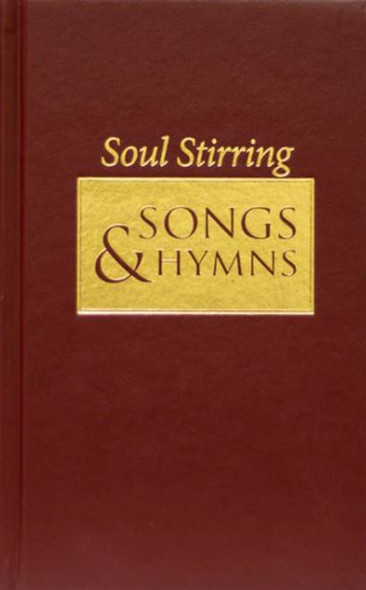 Soul-Stirring Songs & HymnsUpdated Mar 02, 2026 · 1989
Soul-Stirring Songs & HymnsUpdated Mar 02, 2026 · 1989 -
Open
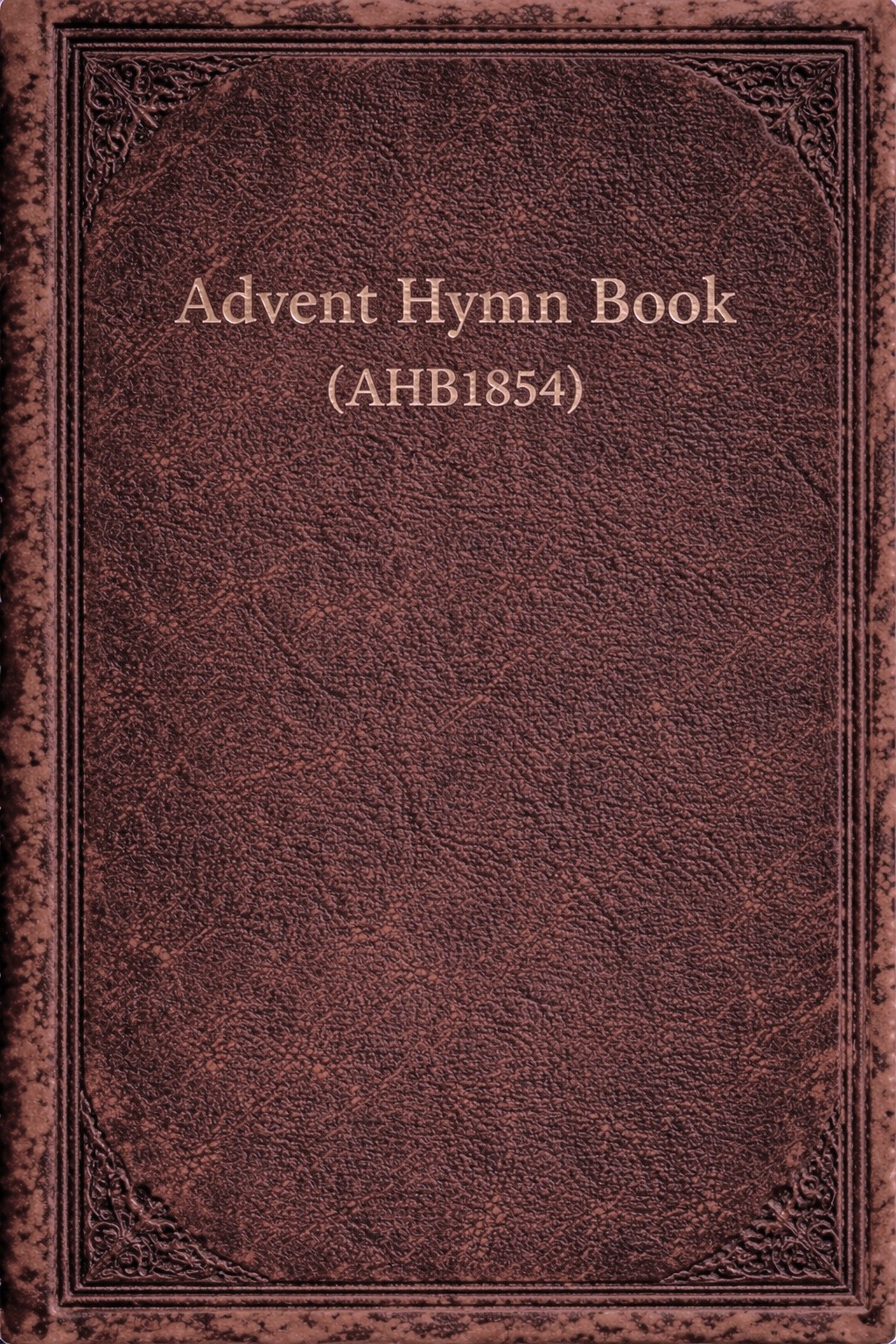 Advent Hymn Book (AHB1854)Updated Feb 25, 2026 · 1854
Advent Hymn Book (AHB1854)Updated Feb 25, 2026 · 1854
Hymn Information
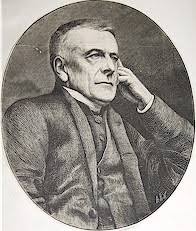
- Category: Hymn
- Author/Writer: Frederick Oakeley (1841)
- Added: July 18, 2025
- Last Updated: August 20, 2025
- Views: 3689
To view the author's biography, click their name above.
MIDI File
Popular Hymns
Recent Blog Posts
Popular Blog Posts
Visit Us on Social Media
Latest from X (Twitter)
Tweets by HymnalLibraryLatest from Facebook
Latest on YouTube
Daily Bible Verse
Disclaimer
The hymns, sheet music, MIDI files, and related content on this website are provided for educational and research purposes only.
- Public Domain: Many of the hymns featured here are in the public domain and may be freely used.
- Copyrighted Works: Some hymns may still be under copyright protection. Where applicable, permission has either been requested from the copyright owner, or the content is shared under the principles of fair use for educational purposes.
⚠️ Important Notice: If you wish to reproduce, distribute, or use any copyrighted hymn beyond personal study or educational use, you must obtain permission directly from the copyright holder. This website does not grant any rights for commercial use yet.
If there is any other question please address it to us in our Contact Page, for further assistance. Thank you for using the site. May God Bless You.


